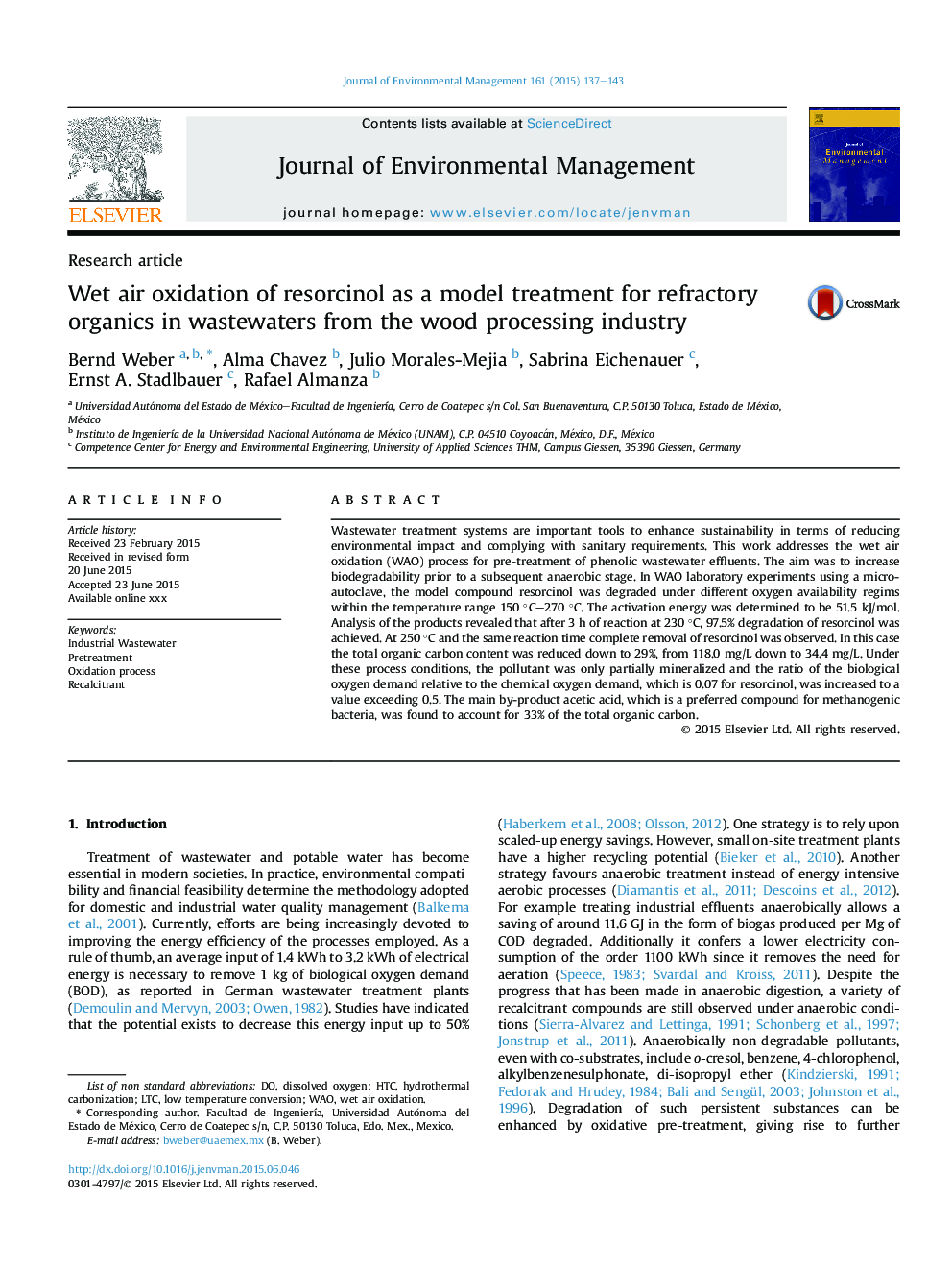| Article ID | Journal | Published Year | Pages | File Type |
|---|---|---|---|---|
| 7481624 | Journal of Environmental Management | 2015 | 7 Pages |
Abstract
Wastewater treatment systems are important tools to enhance sustainability in terms of reducing environmental impact and complying with sanitary requirements. This work addresses the wet air oxidation (WAO) process for pre-treatment of phenolic wastewater effluents. The aim was to increase biodegradability prior to a subsequent anaerobic stage. In WAO laboratory experiments using a micro-autoclave, the model compound resorcinol was degraded under different oxygen availability regims within the temperature range 150 °C-270 °C. The activation energy was determined to be 51.5 kJ/mol. Analysis of the products revealed that after 3 h of reaction at 230 °C, 97.5% degradation of resorcinol was achieved. At 250 °C and the same reaction time complete removal of resorcinol was observed. In this case the total organic carbon content was reduced down to 29%, from 118.0 mg/L down to 34.4 mg/L. Under these process conditions, the pollutant was only partially mineralized and the ratio of the biological oxygen demand relative to the chemical oxygen demand, which is 0.07 for resorcinol, was increased to a value exceeding 0.5. The main by-product acetic acid, which is a preferred compound for methanogenic bacteria, was found to account for 33% of the total organic carbon.
Keywords
Related Topics
Physical Sciences and Engineering
Energy
Renewable Energy, Sustainability and the Environment
Authors
Bernd Weber, Alma Chavez, Julio Morales-Mejia, Sabrina Eichenauer, Ernst A. Stadlbauer, Rafael Almanza,
